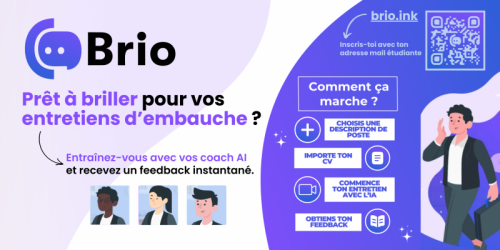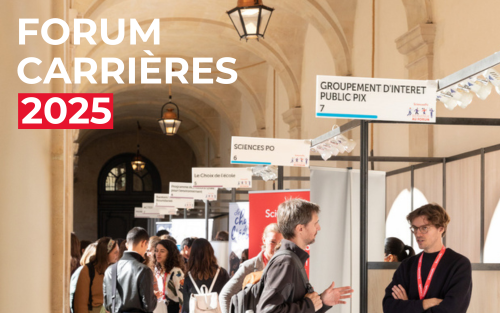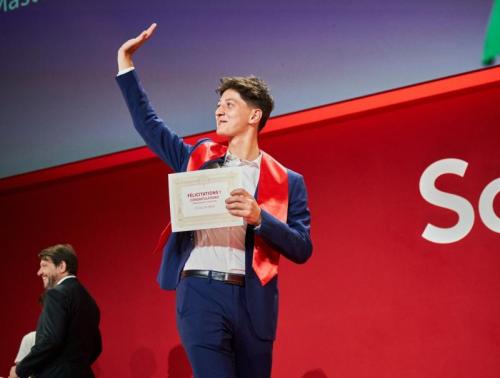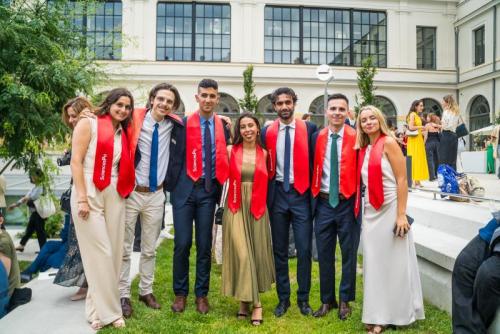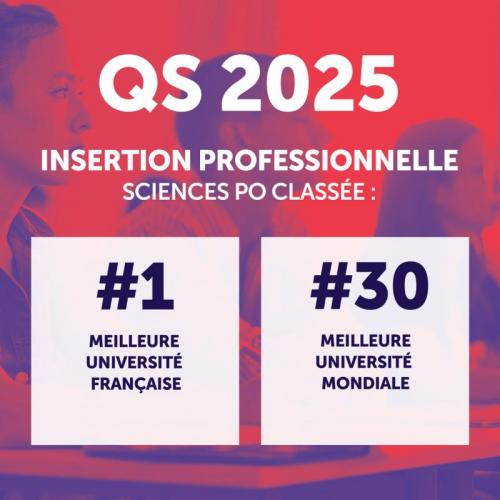Amjad El Hafidi, Graduate of the Sciences Po Law School (2021)
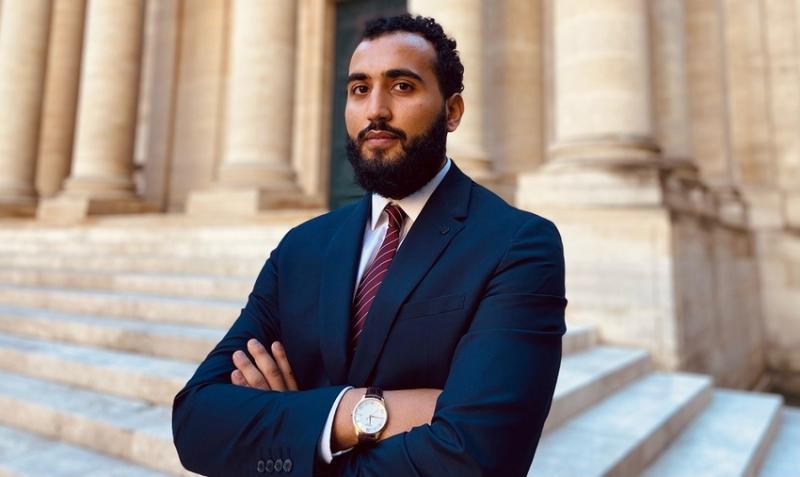
CAN YOU DESCRIBE YOUR ACADEMIC BACKGROUND?
I joined SciencesPo after a scientific French Baccalauréat. During the Undergraduate College, I had the chance to pursue SciencesPo’s dual degree in Science and Social Sciences (SCUBE) in partnership with the University of Paris VI (Sorbonne University) where on top of SciencesPo’s general curriculum, I studied hard sciences (Mathematics and Biology, Physics) and graduated in Physics.
After a third year in California at the University of Santa Barbara (UCSB), full of teachings on innovation, international law and political science, I realized how much Law would allow me to understand the world. This is what led me to apply to Sciences Po Law School.
Following the first year of the Master of Economic Law, I decided to combine theory and practice by taking a gap year. Within August & Debouzy and Hughes Hubbard and Reed law firms, I learned a lot about the high stakes of intellectual property in health and telecommunication industries.
After my studies at SciencesPo, I wanted to broaden my vision of the interactions between regulation and innovation. I am completing my understanding of digital innovation issues within the Master of Electronic Commerce and Digital Economy (DCEEN), directed by Professor Judith Rochfeld at the University of Paris 1 Panthéon-Sorbonne.
WHY DID YOU CHOOSE THE INNOVATION LAW SPECIALIZATION OFFERED WITHIN THE MASTER'S DEGREE IN ECONOMIC LAW?
My academic career has always been guided by the search for interdisciplinarity. I am passionate about the issues at the interface between Science, Society and Law, and in particular about how Law can regulate innovation. In addition to these interests, which have been amply addressed by the master ’s curriculum, the Innovation Law speciality invites students to constantly reflect on the rationale of the legal system, and investigates the way in which not only the Law can but wants to regulate innovation. The opportunity to reflect on innovation policy issues through the prism of legal regulation particularly was really appealing to me, especially since these issues were illustrated by contributions from international experts, lawyers, and renowned law professors.
WHAT IS YOUR PROFESSIONAL PROJECT?
I plan to join the Paris Bar as a tech lawyer, particularly in IP/IT. And in a later stage, I aim to delve deeper into challenges related to innovation policies and scientific diplomacy.
WHAT EXTRACURRICULAR PROJECT(S) HAVE YOU BEEN ABLE TO DO DURING YOUR YEARS AT THE LAW SCHOOL?
Sciences Po Law school offers many opportunities to practice and learn about Law. Thanks to the Environmental Justice and Ecological Transition legal Clinic, I had the opportunity to work on emerging regulatory issues related to the deployment of Carbon Capture, Utilization and Sequestration technologies (CCUS). The project hosted by the International Energy Agency (IEA) aimed at "Accelerating Clean Energy Transitions through CCUS". Clinic team and I helped with the update of the model regulatory 2010 CCUS, that provides for essential guidelines to raise awareness around CCUS for policy makers, and private actors at a global stage. We assisted the IEA's CCUS unit in building a comprehensive handbook of lessons learned gathered from operating projects. It was a true learning by-doing experience enriched by dynamic teamwork and fascinating expert interviews.
I had the honor to represent SciencesPo Law School at the 18th edition of the Oxford IP Moot with my colleagues Audrey Naturel and Eve Schenberg. The Competition gathers teams from universities around the world. After successfully introducing our written submissions, we were qualified to present oral arguments in English on each side of a hypothetical intellectual property law problem set by experts in the field. The experience was demanding but so also very rewarding, because among others I explored in detail the rationale of the compulsory licensing mechanism and had the chance to connect with law students from different legal traditions.
I was columnist at the Sciences Po Law Review. Contributing to the influence of the Review through its events and articles was a captivating intellectual adventure. The Law Review gave me the chance to explore complex and fascinating subjects. Particularly I published an article investigating in a comparative approach the link between the notion of corporate legal personality in Islamic Law vis-à-vis Western legal traditions.
WHAT MEMORIES DO YOU HAVE OF YOUR CLASS AND YOUR TEACHERS?
The innovation speciality gives you a strong sense of community belonging. I will remember the exchanges and laughs we had and which brought us together despite the Zoom fatigue. I will remember in particular the spirit of solidarity that was able to grow in spite of the pandemic.
I will also recall the innovative pedagogy of the Law School, and the professors who by their diversity allowed me to think about the law and its biases, to have a global vision of the actors of the Law. In a word, engaging in a thought-provoking journey. What the Law School taught me is to realize that Sciences Po is really a School of interdisciplinarity that trains you to be an agile explorer: an agile explorer is never afraid to go off the beaten track to elaborate innovative legal solutions.
Amjad El Hafidi, Graduate of the Sciences Po Law School, Master in Economic Law, Programme Droit de l'innovation, 2021



